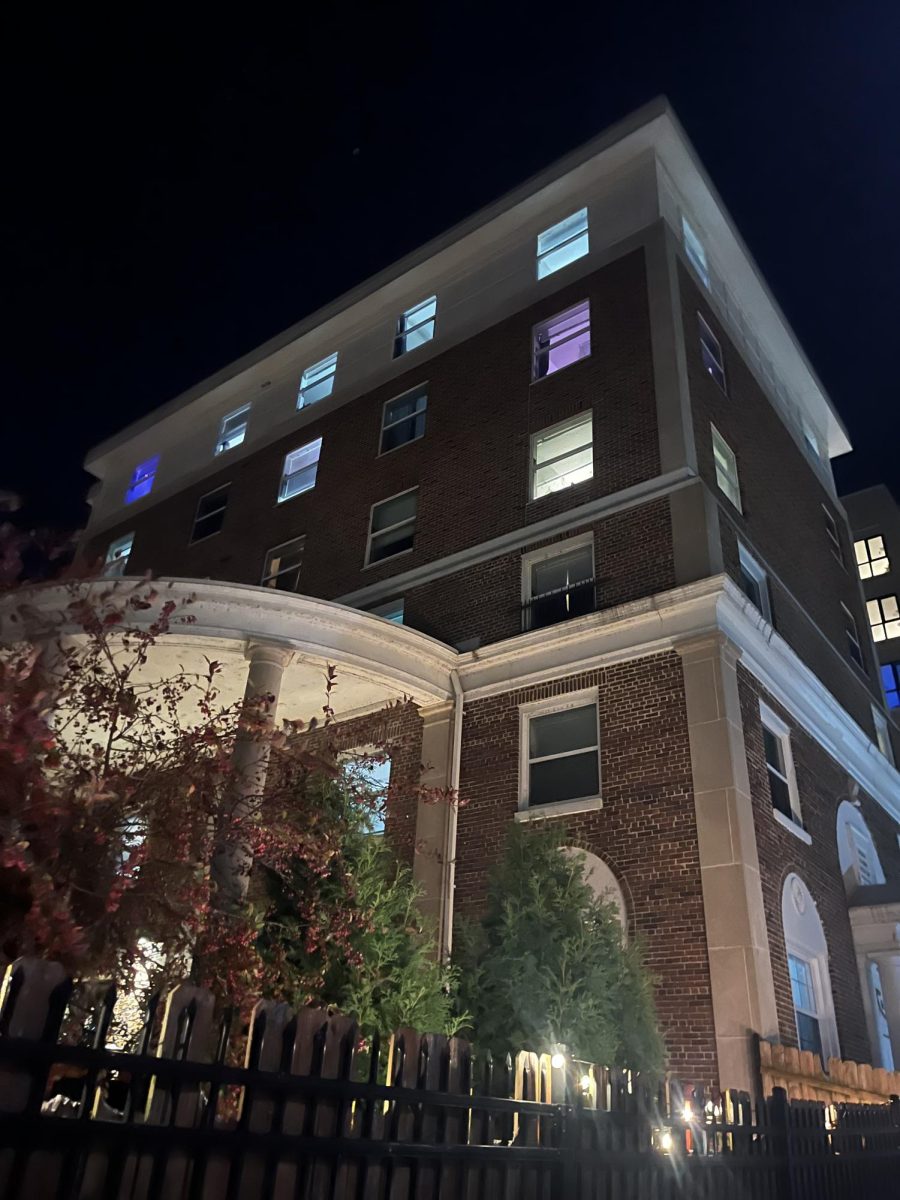Editorial Board: Since school fundraisers indirectly promote racial inequality, a general fund is necessary
April 19, 2023
Thesis
It is the opinion of the Cardinal Times Editorial Board that school fundraising should be changed to a general fund managed by the district, instead of through independent foundations. Addressing racial equity throughout the district should be the foremost priority, even if it takes bold action.
PPS’s history of foundation fundraising: how did we get here?
In 1990, Oregon voters defunded schools across the state by passing Measure 5, which not only reduced property taxes, but also reduced the portion of those taxes that went to funding schools. In response, affluent parents, in collaboration with their schools, created foundations to fundraise money so as to not decrease the quality of education for their kids.
Schools were then given the option to open 501(c)(3) organizations that could run and organize fundraisers. The organizations could then use those proceeds to fund the needs of their school. “Friends of Lincoln” is one such organization.
Allowing parents to fundraise for their own child’s education fundamentally changes a public school system into a system of “haves” and “haves nots.” It places the responsibility on parents to constantly work to keep their school funded, rather than on the government to adequately fund schools. It means that schools have their quality of education in flux. Most importantly, it makes the school system more inequitable by dividing schools into those who have wealthy parents who can raise funds and those who do not. In order to reduce the inequality, the district made a policy that places 30% of every dollar raised over $10,000 in a fund shared by schools in need.
Schools in need are defined as a) having more than 40% of their student population with an origin that is historically underserved (BIPOC), and b) having more than 15% of their student population on the reduced lunch program.
The 30% sharing requirement began as a radical policy change in 1990, but what was previously a stop-gap solution has become the status quo, and has actively misled our community into not realizing that our fundraising is actively, if not intentionally, propagating inequity in our school system.
Currently the fundraising of approximately 22 schools is being shared between 61. For that reason, where Lincoln may raise over $499,344 in a single year, as it did before the pandemic, schools receiving grants from the Fund for PPS only receive between $10,000 to $30,000.
Even if the funds were distributed in a way more addressing to need, they still would not be sufficient. Because Lincoln can keep so much more than other schools, staffing, which is the largest predictor for student success, will always be inequitably distributed.
According to PPS’s own reports, Friends of Lincoln has paid for 16.42 Full Time Equivalents (FTEs) since 2017. Since 2017, Lincoln has raised 1.4 million dollars, the next highest fundraising high-school, Cleveland, raised less than 400,000. Even after distribution, schools that hold fundraisers receive 300 dollars per student, while schools which receive equity funds get an average of 56 dollars per student, about one sixth the amount.
Research done by Dr. Beth Cavanaugh in her dissertation “The Influence of a Public School Fundraising Equity Policy[…],” shows that there is a statistically significant, 99.99% certain inverse correlation between the amount of BIPOC students in a school and the fundraising dollars the school receives. Fundraising is not only inequitable in this district, but inequitable squarely on the lines of race.
These facts laid-out may be upsetting to members of our community, but the 30% revenue share is not moving our system towards equity. It is perhaps an unwillingness to admit that fact that has kept an ineffective policy around for so long: to admit something previously seen as altruistic was actually not.
The evidence has shown us that without change, our current policy will maintain inequity in fundraising. While the Fund for PPS is technically achieving the mission of “reducing inequity in the district,” we believe the efforts of the district have not gone far enough and that we as a community are faced with the responsibility of addressing this inequity head on with bold action.
Moving forward
The editorial board considered five potential reforms: keeping the 30% sharing policy as is, removing the privilege of fundraising all together, removing the privilege for schools to fundraise FTE positions, increasing the 30% revenue share, and creating a general fund.
For the reasons mentioned previously, keeping the 30% sharing policy was untenable. Additionally, removing fundraising altogether is also untenable so long as Oregon’s schools are systemically underfunded.
That left two options: increasing the revenue share, or creating a general fund. Increasing the revenue share has multiple problems. For one, models done by Dr. Cavanaugh showed that in order for the revenue share to change the statistically significant relationship between race and fundraising, the share would have to be increased to 75%. Increasing the revenue share to 75% would almost certainly result in a loss of donations.
It would not be a tenable position for foundations, as they exist today, to market themselves as serving the school they represent when so little money they raise actually goes back to it. Lincoln’s connection to the Portland community would be relegated to simply writing out a large check to be clinically divided up between other schools. This would be frustrating, and would more likely breed resentment among our community rather than connection.
That left one option: a general fund. Specifically, this recommendation would remove all fiscal responsibilities of foundations. Fundraising has to be done in representation of the whole district.
Models to replicate would be like the system in Malibu, CA, which spreads out all PTA fundraising equally between schools. Alternatively PPS could take the route of Palo Alto, CA and Lake Oswego, which both have one organization responsible for fundraising their whole districts.
Fundamentally, this would change outcomes to not only be more equitable, but bring about a positive change in thinking across the whole district. As it stands now, fundraisers are a way that schools foster thriving communities within a school. Rock the Flock, for example, was a moment where members of our music and art departments, educators, students, families and even corporations were joined under one single banner to improve the education of Lincoln students.
Imagine the good that can be done if that banner doesn’t just fly over the commons room of Lincoln, but the whole of PPS. Switching to a general fund could change the way we see our place in the district: not as a vassal state who must pay a relief to the castle on 501 N Dixon St, but as a smaller representative to a collection of school communities. This is an opportunity to see that whether our school lies in the east, west, north or south, we are connected by our shared experience of this beautiful city. It will be a shared acknowledgement that the things that make this city good for one of us, makes it good for all of us.
Our current fundraising system tricks us into believing that each school exists simply by itself. It denies our place in the district, restricts our reach and limits our perspective to just being within our own school boundaries: school boundaries which were historically drawn on the basis of race with redlining. Foundation fundraising as it exists now fundamentally polarizes the school communities of this city on the basis of class and race. This is fundamentally opposed to the ideal of public education. Public education should not be made of atomized “clubs” linked loosely together by a district, but instead be a public good we all serve to maintain.
The policy we have now is broken. It creates inequitable outcomes on the basis of race. So we must fix it. Even if it’s unpopular, and even if it’s hard, because it’s the right thing to do. Because, if not now, when? For as much as opponents to change can try to point out problems with the general fund policy, they can not dispute the necessity of fixing inequality, and they can not find a better time than Right. This. Instant.




Wesley Grout • May 2, 2023 at 10:37 pm
I LOVE this article. So true and so well written. If PPS wants to abide by its commitment to equity, it CANNOT continue to allow school foundations to exist in their current capacities. A general fund is the answer!